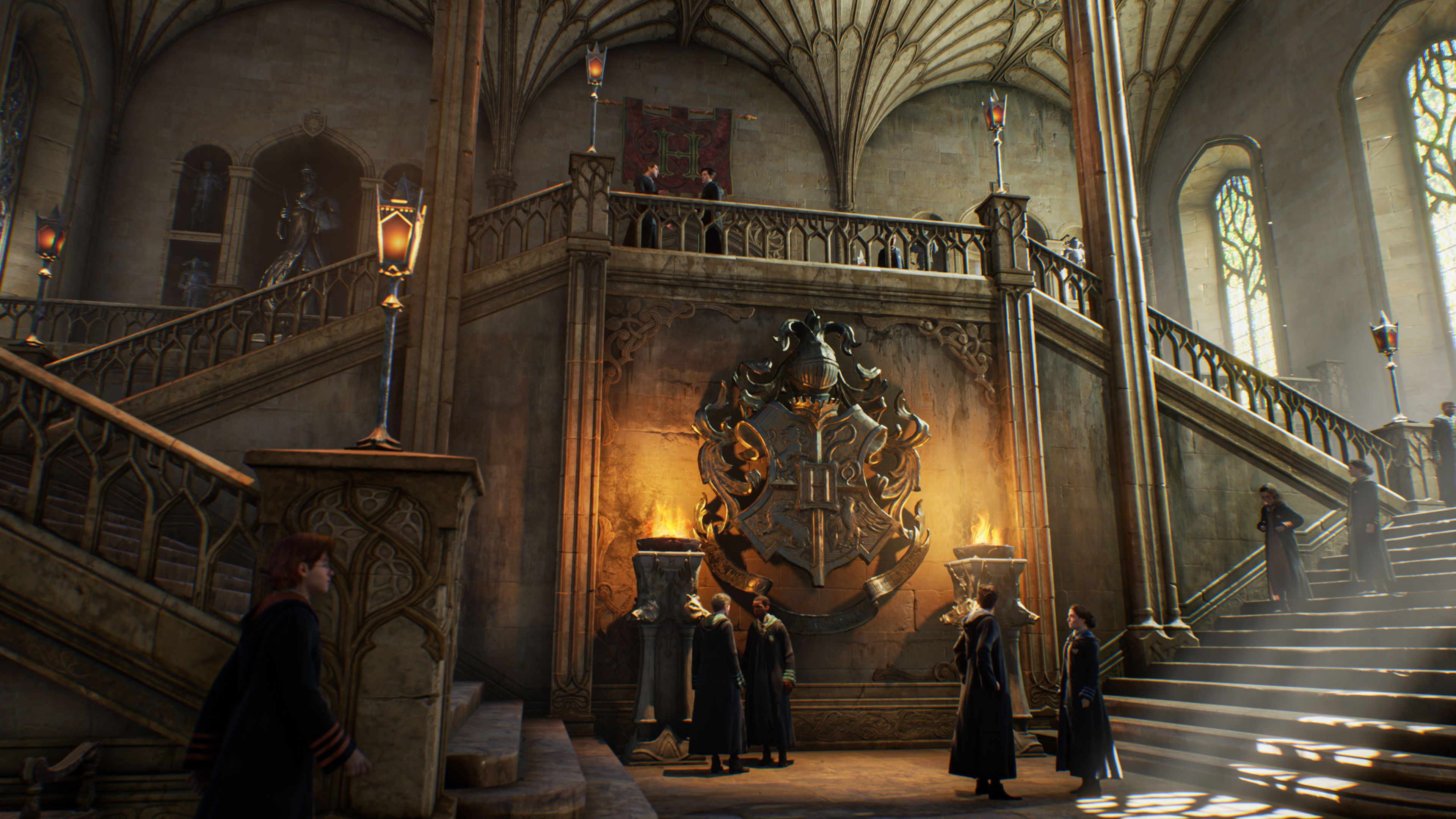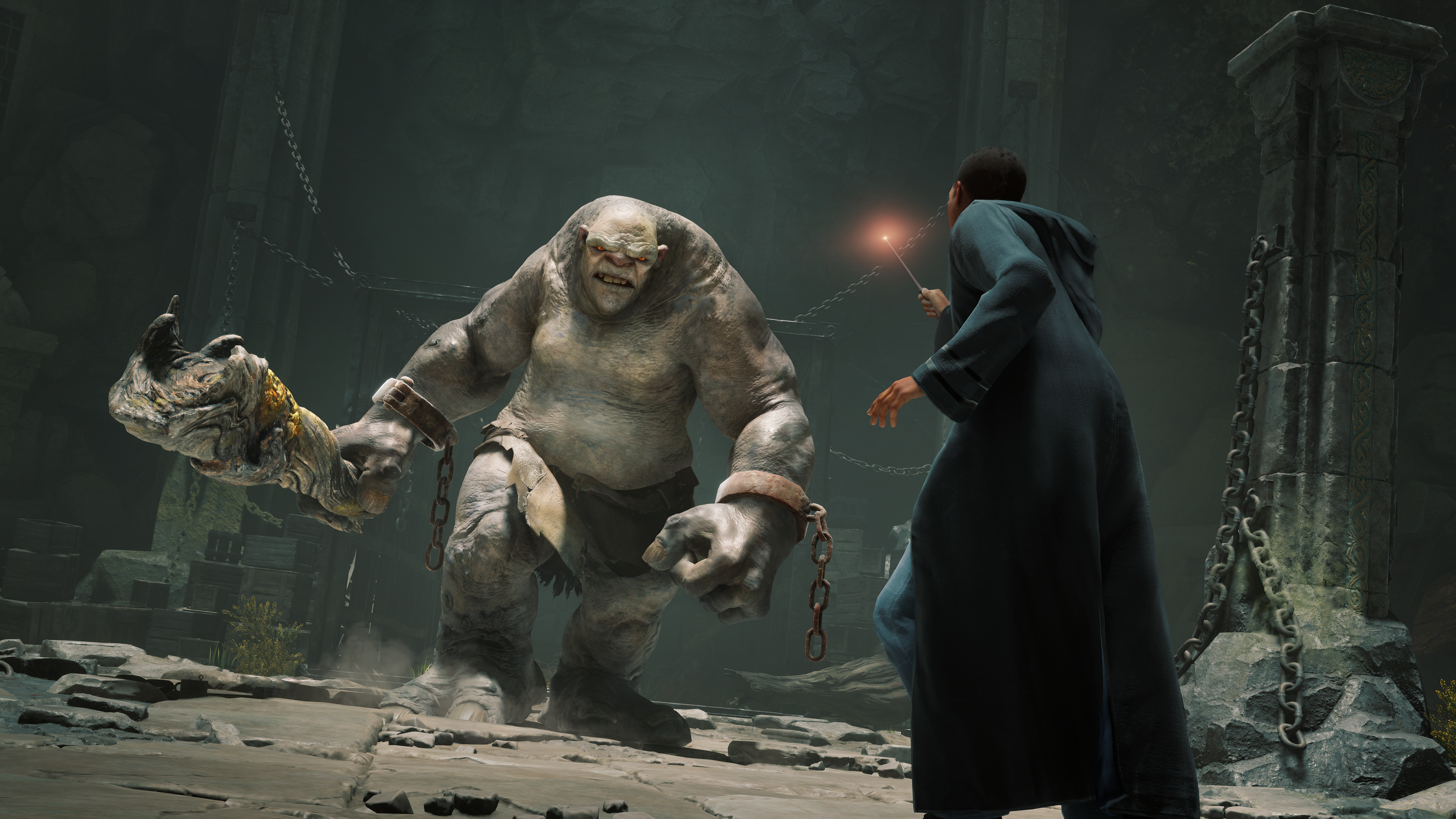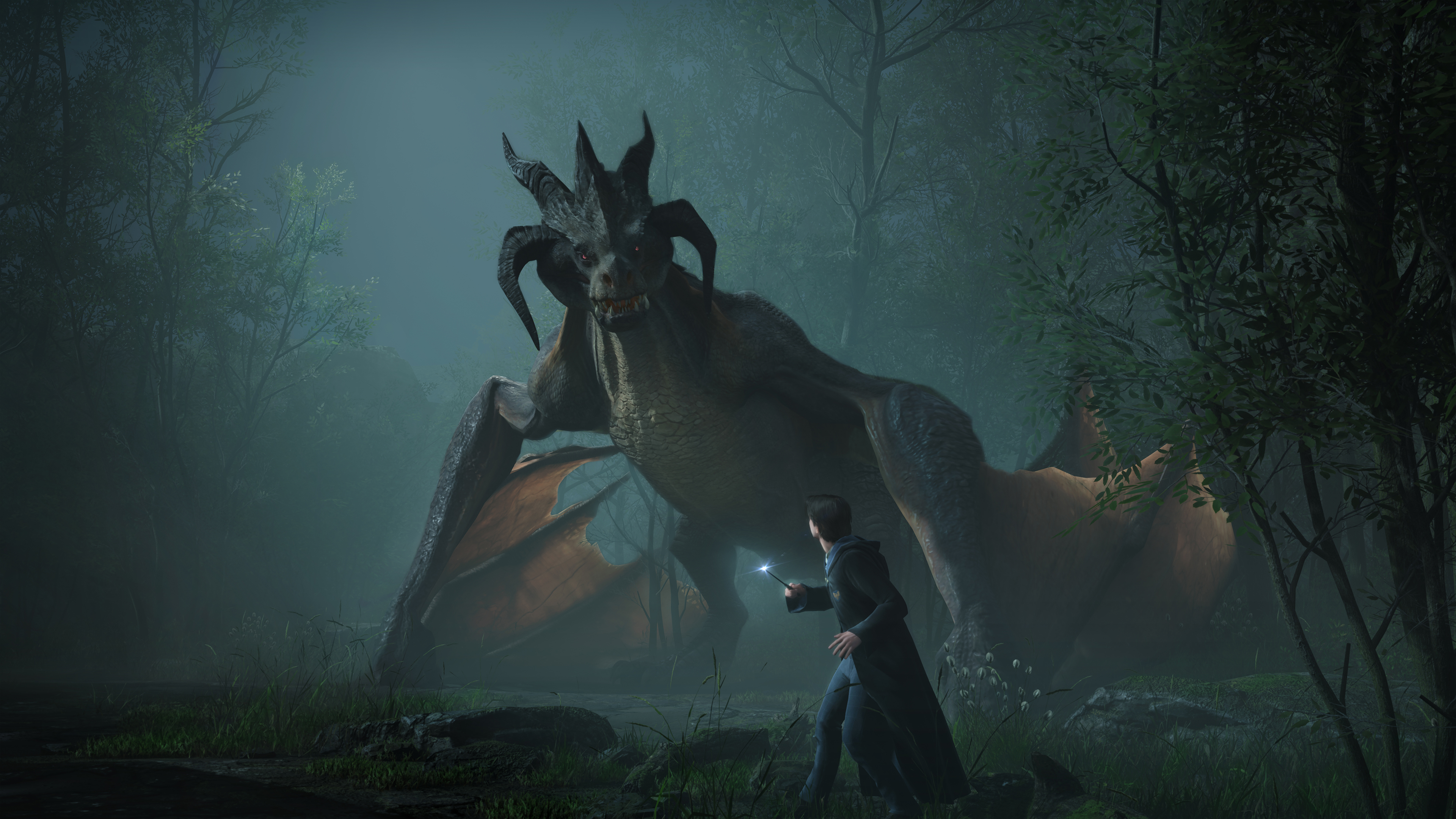The upcoming Harry Potter RPG, Hogwarts Legacy, has been getting lots of publicity lately. Unfortunately, it’s been bad publicity, such as this month’s resignation of lead designer Troy Leavitt after his YouTube channel became more widely known. In the channel, he expressed views that appeared to be pro-GamerGate, anti-feminist and supportive of men accused of sexual harassment.
It’s not the first PR problem for the game, and some gamers are now vowing to boycott Hogwarts Legacy altogether. The popular gaming forum, Resetera, has announced “a total ban on threads for promotional media for the game… no threads for trailers or official announcements, no hype threads, no fluff pieces about its features.”
What does that mean for the game’s commercial prospects – and for the gamers who feel the long-awaited Harry Potter RPG has become too toxic to touch?
Harry Potter and the Game of your Dreams

It wasn’t supposed to be like this. Hogwarts Legacy was going to undo the often spotty reputation of Harry Potter games, which have often veered between flimsy film tie-ins and mobile cash grabs. Reviewing the iOS game Harry Potter: Hogwarts Mystery, the UK’s Guardian newspaper called it “a shameless shakedown… made borderline unplayable by its hyper-aggressive monetization”. That criticism has also been levied at other HP games, such as the Pokémon Go-esque Harry Potter: Wizards Unite, which was described by Metro GameCentral as “depressing” because of its “constant desire to shake you down for cash”.
"Immersive, open-world games have huge appeal to any gamer, but they’re particularly resonant for LGBT+ gamers, for whom they can be safe spaces to escape to. But for some in this community, the Wizarding World doesn’t feel so safe anymore."
Given that background, the news that Avalanche was making a Harry Potter game was greeted in much the same way a drowning man greets a lifeboat. Avalanche Software is the former Disney studio that made the Disney Infinity series – pretty good credentials for a studio tasked with developing an open-world Harry Potter game and its sequels.
The appeal of Hogwarts Legacy is simple: as an open-world RPG in which you play a Hogwarts student discovering magical abilities in the 1800s, it enables you to inhabit the Wizarding World in a much more immersive way than any previous game. While the reveals so far have been heavy on the cutscenes, what we’ve seen of the game looks great.
The footage we’ve seen so far suggests that Hogwarts Legacy is going to be a beautiful-looking game with well-realized characters and surprisingly scary monsters. The game world is large, including not just the titular school for wizards but also the nearby Hogsmeade village and the Forbidden Forest, and because it’s an open-world adventure no two players will have identical experiences. You’ll be able to customize your character – more of that in a moment – and as you progress through the world you’ll choose allies and enemies and make choices that will irrevocably change your path. And of course, there’s magic to learn and unleash.
Immersive, open-world games have huge appeal to any gamer, but they’re particularly resonant for LGBT+ gamers, for whom they can be safe spaces to escape to. But for some in this community, the Wizarding World doesn’t feel so safe anymore.
Harry Potter and the Unpopular Opinions

When developers do problematic things, the studio can fire them or pressure them to resign. But they can’t do that with the franchise author.
JK Rowling has been increasingly vocal about her views on trans issues, which many see as insensitive at best and outright transphobic at worst, and those views have been criticized by many of the Harry Potter films’ actors as well as by Potter fans. Two fansites distanced themselves completely from the author, and Warner Bros has responded to the ongoing controversy by stating that Rowling is not “directly involved” in the game, although, of course, she benefits financially from it.
With some fans vowing to boycott future Potter products, Hogwarts Legacy has become mired in controversy and some LGBT+ gamers – myself included – wouldn’t touch it with a bargepole.
Can Hogwarts Legacy win us back?
Harry Potter and the Multiple Revenue Streams

The latest headlines around Hogwarts Legacy follow reports that the development team is working to make the game more inclusive. Speaking to Bloomberg’s Jason Schreier, the unnamed insiders said that players will be able to “customize their characters' voice, body type, and gender placement for the school dormitories”.
"Perhaps instead of praising Avalanche for possibly including a more diverse character creator, we should be asking why it isn’t the norm."
Trans and non-binary people haven’t exactly greeted the announcement with joy, and that’s partly because we’ve been here before. Cyberpunk 2077 had a similar approach with a much more adult focus, but it didn’t do it particularly well: characters gendered you according to your voice, and the in-game trans representation was often as bad as the social media marketing. The character creator also had what seemed to be a very giggling-schoolboy approach to body modification, enabling you to give yourself bigger nipples or style your pubic hair, but not change your body shape.
The Hogwarts character creator promises to be better (and not R-rated), but your placement in school still depends on picking between the binary option of witch or wizard – even though wizard is a gender-neutral word that encompasses witches as well as warlocks. That’s because Hogwarts Legacy has not been made with trans or non-binary people in mind. The trans options in the character creator appear to have been retrofitted in much the same way Dumbledore was revealed to be gay without his sexuality ever being mentioned in the books or films. In that context, the character creator feels rather like ‘Rainbow-Washing’: sticking a rainbow flag on something as a marketing stunt, or as PR damage control.
And there’s another lesson we’ve learned from Cyberpunk 2077. What the developers promise journalists isn’t necessarily what ends up in the game you play. There’s no guarantee that the promised options will make the final cut.
Even if trans character creation does make it into the game, it’s hardly a great leap forward: when games such as Borderlands 3 enable us to play as sentient, wisecracking dustbins or non-binary robots, asking games to reflect the diversity of actual human beings shouldn’t be too much to ask. Perhaps instead of praising Avalanche for possibly including a more diverse character creator, we should be asking why it isn’t the norm.
Harry Potter and the Tarnished Legacy

Is Hogwarts Legacy a game we still want to play? That very much depends on which “we” you’re talking about.
"I can’t separate The Boy Who Lived from the woman whose initials appear as a hashtag in the bios of some of the most hateful people on social media."
While some Harry Potter fans are wary – Felicia Grady of fansite MuggleNet told Bloomberg that “based on what I’ve seen from fans, I do believe that Rowling’s comments have had some effect on the level of excitement [those fans] have… we’ve seen comments from fans who no longer wish to support Rowling or the brand financially” – not everybody thinks about or even cares about these things. When a fan is happily browsing the HP merch in a fast-fashion retailer, they don’t usually ask whether it may have been stitched together by child labor in a sweatshop in Asia.
This isn’t just a Harry Potter thing. How many of us research the devs of the latest triple-A title to check that they haven’t been accused of awful things? How many of us can even name the big studios implicated in #metoo controversies in recent years, or the ones whose deadline crunches mean their staff are treated terribly? With or without controversy, Hogwarts Legacy will still sell.
I think some trans gamers will play it too. Maybe they can separate the art from its creator, or maybe some of them will wait for the game to become available on Xbox Game Pass so they’re not directly paying for it; maybe some will buy it outright because they want to reward the developers who haven’t been railing against SJWs on YouTube. And that’s absolutely fine. I’m not demanding that the game be canceled or that anybody boycott it, and neither are any of the trans or non-binary people I know.
But I hope people who aren’t trans or non-binary can understand why some of us won’t play it, no matter how many tweaks Avalanche makes to try and make it more inclusive. In the middle of a small-c conservative backlash against trans people, and unprecedented legal attacks on our rights and healthcare in the US and UK, I can’t separate The Boy Who Lived from the woman whose initials appear as a hashtag in the bios of some of the most hateful people on social media, the woman whose blog is quoted approvingly by some of the same kind of right-wing politicians who used to demand that her books be burned.
So for this gamer, trans woman and parent of two young gamers who used to love the Potter books, it’s a hard “nope” to Hogwarts Legacy: it’s as welcome in my home as I would be in JK Rowling’s. There are other open-world games I’d rather play, games I can play with a clear conscience, games that offer escapism from a world that feels pretty awful for many trans people right now. It’ll take more than a rejigged character creator to change that.
from TechRadar - All the latest technology news https://ift.tt/3leeJXp

